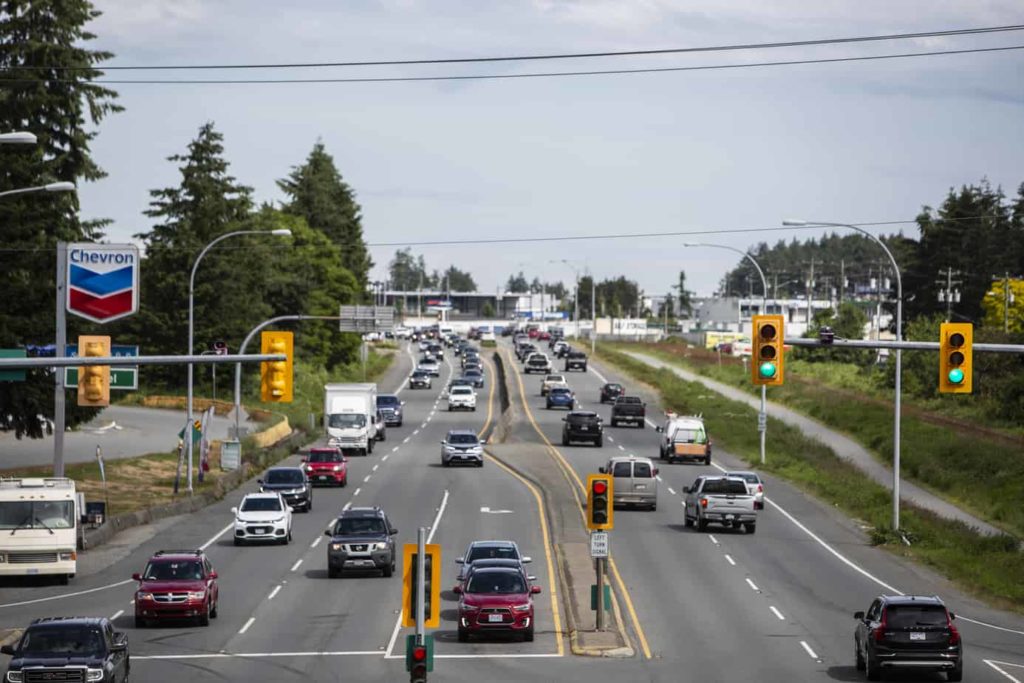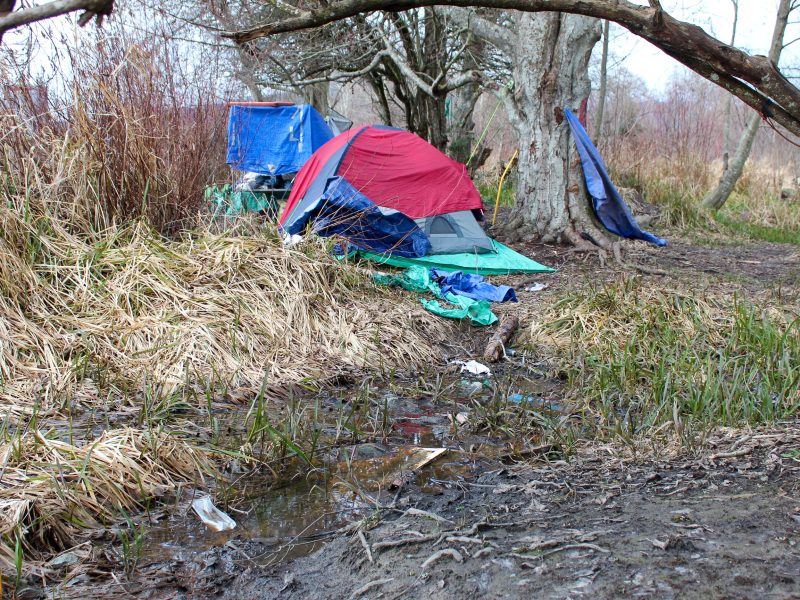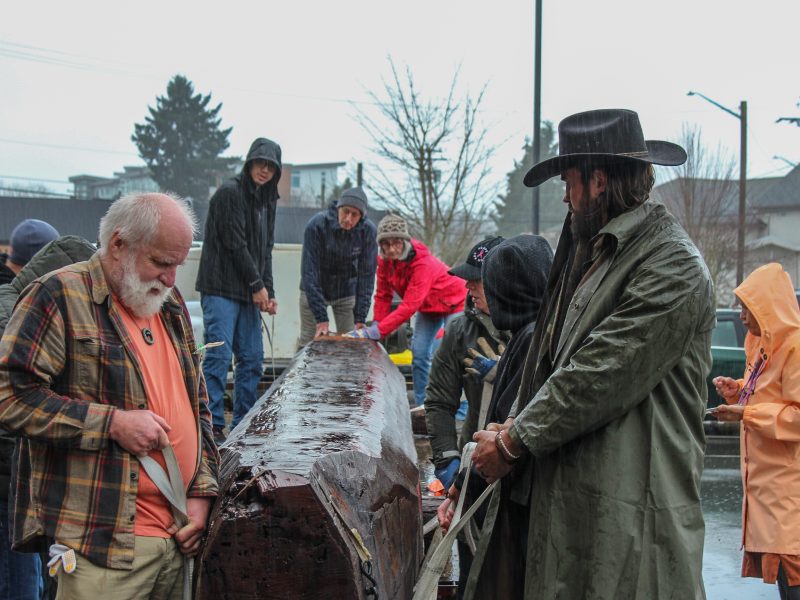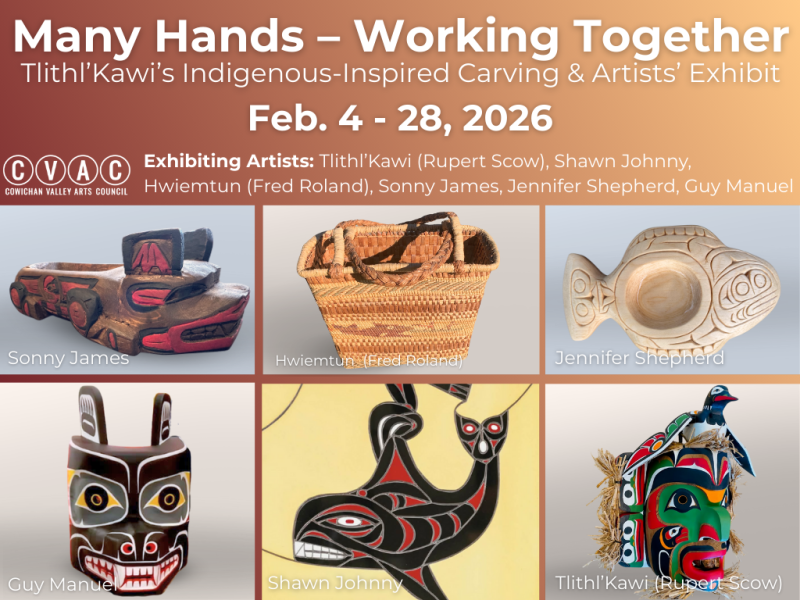
The future of public transportation for mid-Vancouver Island hasn’t made headlines this election. But we know you care about it. Here’s what B.C’s political main parties have to say about transportation, presented in alphabetical order.
On the future of Vancouver Island’s rail corridor:
Nanaimo-North Cowichan candidates weighed in on the issue of what to do with the corridor in an all-candidates forum hosted by the Chemainus Residents Association.
Chris Istace of the Green Party wrote that he favours “converting the old E&N corridor to an accessible multi-use trail system,“ through First Nation consultation and partnership. Restoring the rail line would be costly, he wrote, and “communities would benefit more from a shift towards active transportation” to both connect communities and support tourism.
Duck Paterson of the Liberal Party wrote that the corridor is an “amazing asset” for both locals and tourists, and expanding the corridor for walkers and bikers would boost local economies. As far as rail, he wrote: “I don’t have enough information about actual costs, as well as how much money the railway has to put into it.”
The NDP’s Doug Routley said he’s a “huge advocate for rail services” to reduce emissions and congestion on roads and provide transportation for those who do not drive, in addition to tourists. He said he’s been involved in the discussions and that “there is still work that needs to be done that will ultimately determine the route that we take.”
At an all-candidates meeting held by the Nanaimo Chamber of Commerce, Green Party candidate for Nanaimo, Lia Versaevel, was the only candidate that mentioned rail in response to a question about improving Vancouver Island transportation. “We want to emphasize the use of existing infrastructure,” like rail, Versaevel said.
“The E&N corridor must be part of a regional transportation strategy that builds frequent and affordable public transportation links between cities, such as between Cowichan and the [Capital Regional District],” a Green Party representative told The Discourse by email.
The B.C. NDP and the B.C. Liberal party did not respond directly to The Discourse’s request to address plans for the Vancouver Island railway corridor by deadline.
On their vision for transportation:
In an announcement made in Nanaimo, the BC Green Party said it intends to establish a “world-leading zero-emission transportation system” by electrifying transit and requiring all non-commercial vehicles to have zero emissions by 2035. Party leader Sonia Furstenau said they will also expand public charging infrastructure on all highways in the province.
In another announcement, the party wrote it will expand “provincial funding for projects such as bike lanes, trails,” and build “frequent and affordable public transportation links between cities, such as between Cowichan and the [Capital Regional District].” A party representative also told The Discourse they’ll establish “a regional governance body to overcome fractured decision-making and deliver integrated planning for the growing region.”
The BC Liberal Party platform points to investments in road improvements and transit projects “to reduce congestion and improve travel for drivers and transit users”. It says the party will make “electric transportation more widely available” through charging stations and “increase transit hours” for Vancouver Island.
The BC NDP platform says it will implement the South Island Transportation Strategy and “provide more active transportation infrastructure, rapid bus service to the West Shore, and safety upgrades to the Malahat highway.” The party also commits to “doubling trips taken via walking, biking and other kinds of active networks by the year 2030,” and improving the affordability of e-bikes and electric cars. Large transit infrastructure projects are focused on the Metro Vancouver area.
All parties suggest they’ll improve ferry service at peak times, while the BC Green Party has said it will restore BC Ferries to a Crown corporation.
Overall, there’s relatively little mention of transportation commitments and strategies specific to Vancouver Island, especially for mid-Island residents, as health care, housing affordability and economic recovery have dominated debates.
For more information, see the party platforms
We’re delivering pop-up coverage just in time for the B.C. provincial election. Sign up for updates.



